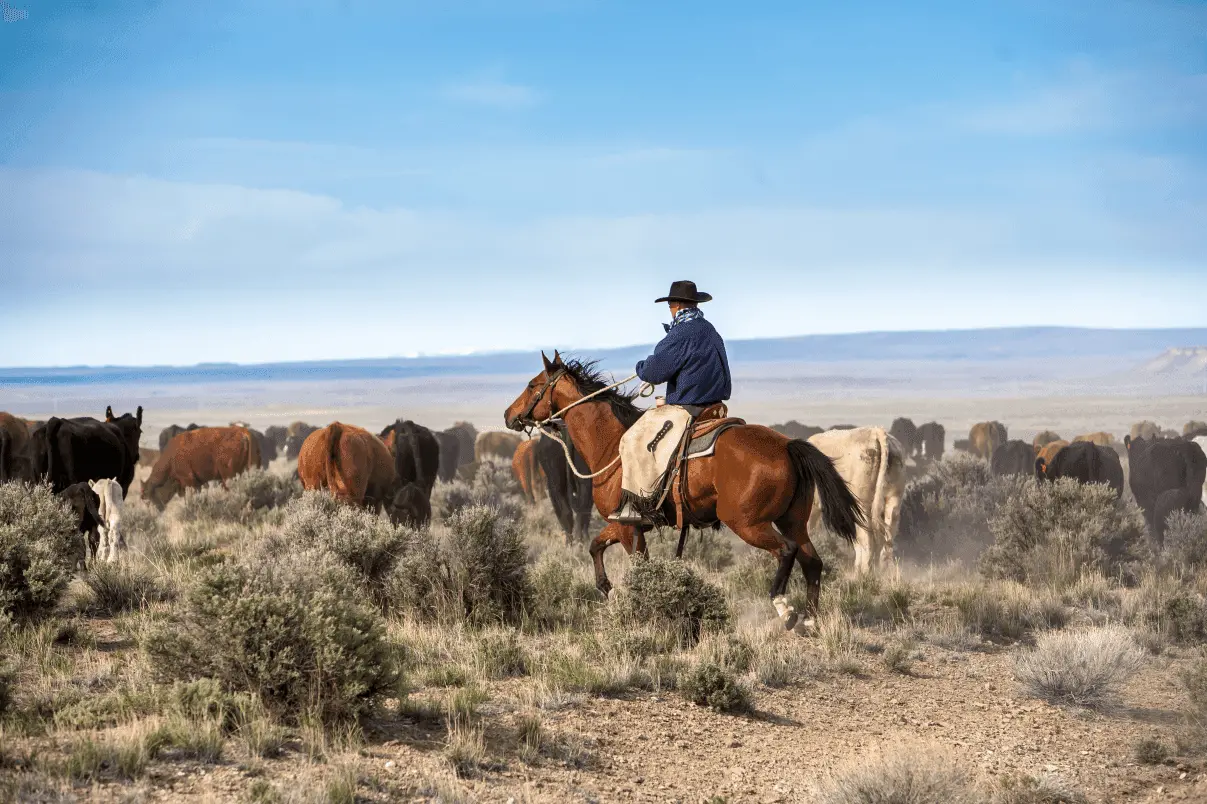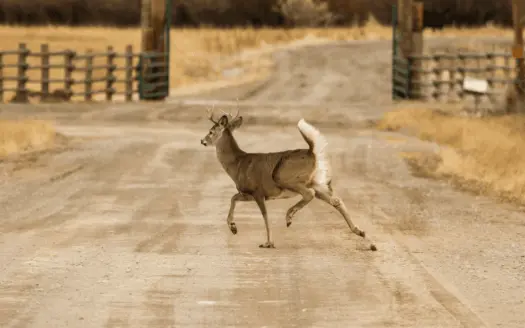13 Things You Should Consider Before Buying a Cattle Ranch
There are several key components to consider before taking on the responsibility of operating a cattle ranch. From climate and soil conditions to water sources and veterinary services, this list is full of critical details that will help guide your investment.
Is a Cattle Ranch a Good Investment
Investing in a cattle ranch can be a good financial decision if it is well-managed and generates positive cash flow. However, there are many factors to consider before making the decision to invest in a cattle ranch, such as the location and size of the ranch, the quality of the land and infrastructure, the demand for beef and other products, and the potential for future growth.
It is important to do thorough research and consult with experts before making a significant financial investment. Additionally, it is important to have a long-term investment horizon and be prepared for potential challenges and risks, such as changes in market conditions, natural disasters, and diseases affecting livestock.
Here are some things to consider when buying a cattle ranch:
-
Land History and Quality
When buying a cattle ranch, it is essential to know the land’s history and quality in order to make an informed decision about the potential profitability of the property.
Understanding the history of the land can help you determine if the soil is suitable for growing feed for cattle, and if the property has a history of flooding or other natural disasters that could affect the health of the livestock.
Additionally, knowing the quality of the land can help you determine if the property is suitable for growing other crops or using it for other purposes, such as recreational activities.
It is also important to know if the land has any environmental or zoning restrictions that could impact your ability to use the property as a cattle ranch. To gather this information, it is recommended to consult with local experts, such as real estate agents, agricultural extension agents, and natural resource managers.
-
Location and Access
Accessibility is important to ensure that items needed on the ranch can reach quickly and conveniently. The location must also be considered so that the location of other resources such as feed stores, veterinarians, and retailers are in proximity.
Location can affect the ease with which stock moves to buyers, or the landowner can transport herds to grazing areas and back. Access to highways and transportation infrastructure is an important factor in making sure these needs are met.
-
Local Zoning Laws
Being informed on any laws surrounding buying ranch land or buying rights and deeds can also be beneficial when buying a cattle ranch. Local zoning laws can affect what kind of land use is permitted in certain areas, as well as any restrictions that could prevent an individual or business from running an agricultural operation.
Furthermore, zoning regulations often vary widely between localities and states, so it’s important for potential buyers to research and understand the local zoning requirements prior to purchasing a cattle ranch. Having this knowledge upfront can help ensure purchasers don’t find themselves with unanticipated difficulties operating their new ranch afterward.
-
Time and Attention
Before buying one, potential buyers should determine if they have the time and dedication necessary for owning a ranch. Factors such as time spent creating practical solutions to manage daily operations, the resources available to maintain the grounds, and vet bills must be taken into account.
It’s also important to factor in time spent developing relationships with employees, suppliers, and customers purchasing outputs from the ranch.
-
Finances and Taxes
When it comes to buying a cattle ranch, finances and taxes should be top of mind. After all, you’ll need to factor in not only the purchase price but also the costs associated with investing in the land and running the ranch. Taxes – both federal and local – can quickly add up and so it’s important to plan accordingly in order to stay on track financially.
Moreover, there may be additional tax credits, deductions, or incentives at state or federal levels that apply to agricultural businesses, so make sure you understand what your obligations are in terms of taxes when buying a cattle ranch.
-
Water Rights
Without water for your grazing grounds and for your herd, there is no point in the investment. Before finalizing a deal on a property, it is important to research who has water rights in the area and if those water resources are currently being utilized.
To ensure that your purchase is solid, and water access will not be a problem, it is wise to have an attorney review all paperwork pertaining to water rights on a property before closing the deal. This will go a long way toward protecting both you and your beef-producing business.
-
Motorized Recreation
A motorized recreation plan can bring an extra layer of income to the ranch, as well as attract potential buyers and increase the value of the property. Visitors to the ranch may include motorcyclists, ATV riders, and other off-road vehicles that seek out properties where they are able to safely enjoy their motorized sport of choice without cutting into other’s profit or space. Adequate trails need to be maintained in order for motorized recreationists to have the best possible experience.
-
Hunting and Fishing
While ranches are often used for agriculture and raising livestock, hunting and fishing on the property can provide another source of income. Wildlife that can be hunted is determined by local and state regulations so it’s important to investigate what hunting and fishing opportunities are available prior to making an offer.
Additionally, access to hunting lands and permit restrictions may also impact the desirability of a given property. Researching these things ahead of time can help ensure that the ranch being purchased will provide optimal hunting and fishing advantages for years to come.
-
Fencing and Other Improvements
High-quality fencing is essential in providing safe, secure boundaries. Proper fencing will allow cattle to graze on pastures without escaping or becoming vulnerable to potential dangers such as predators.
Making sure the land supports livestock needs should also be researched, such as ensuring adequate water sources and shaded areas. Quality fencing will prevent property trespassing as well as protect against theft of livestock and equipment.
-
Agricultural Production
Agricultural production can determine how successful and profitable a farm or ranch may be. It needs to be taken into account if the goal is to build and maintain a sustainable farm or cattle ranch. Otherwise, an agricultural operation may struggle with profitability due to poor yields, which means it is vital for buyers to research agricultural production levels before investing in a property.
-
Livestock Capacity
Livestock capacity indicates how much livestock the land can support in order to maintain its health, and is an essential indicator of how successful a ranch may be down the line.
Measurements such as hay production, water availability, grazing capacity, and livestock acreage are factors to take into account when looking at livestock capacity. With proper research and due diligence in evaluating livestock capacity, you can make sure you are getting the right property for your needs.
-
Minerals
Many minerals, such as phosphorus and calcium, are necessary nutrients for healthy cows and other livestock. Ensuring these minerals are available is of utmost importance; as minerals can be present in the landscape naturally or require supplementation. Purchasing a property with existing minerals eliminates the cost of additional minerals and makes the ranch ready to begin operations faster.
-
Leases and Conservation
Lease agreements are an important component in the cattle industry, as they provide ranchers with access to large tracts of land without having to pay for them upfront. Additionally, leases offer the chance to engage in cooperative conservation activities that can benefit both the ranch owners and their neighbors.
Understanding leases can help save money and ensure that all parties are following sound management practices. Taking a long-term view on leases and conservation ensures that the land remains healthy, productive, and profitable for many years to come.
Getting Your Cattle Ranch Ready
If you’re in the market for a cattle ranch, it’s important to consider all the factors involved. By keeping these thirteen things in mind, you’ll be able to find the perfect property that meets your needs and goals.
Contact United Country Real Estate today if you have any questions or would like assistance finding the right cattle ranch for your operation.




